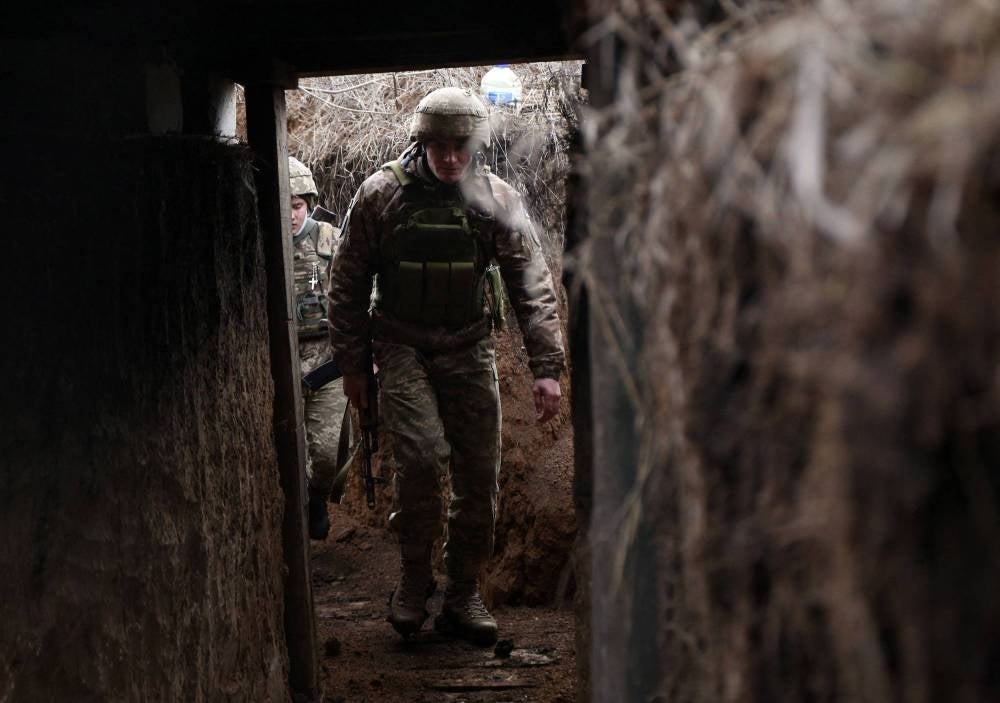Tension escalates as Russian troops pour into Ukraine’s “breakaway” regions
TASNIM LOKMAN, MINDERJET KAUR AND DANIAL DZULKIFLY
SHAH ALAM – Tensions between Russia and Ukraine along with its Western-backed allies, has now escalated as Russian troops pour into the “breakaway” regions in eastern Ukraine.
This follows after Russian President Vladimir Putin ordered troops into the Donetsk and Lugansk region as a measure to “keep the peace”.
Both regions which saw most of the heavy fighting in the past eight years is partially controlled by Russian-backed separatists.
A witness told Reuters that tanks and other military hardware are moving through the separatist-controlled city of Donetsk while a reporter attached to the news agency reports about five tanks were seen in a column on the edge of the city and two more in another part of town, with no insignia visible on the vehicles.
Following Putin’s announcement, the US immediately imposed sanctions to halt US business activities in these regions and ban the import of all goods from those areas.
Britain France and Germany also agreed to respond to Russia’s recognition of the breakaway regions with sanctions, and the White House said it would announce further measures.
Former United States Ambassador to Russia Michael McFaul said the world needs to “say it as it is” in regards to Russia’s presence in Ukrainian breakaway regions.
Speaking in an interview on CNBC, he said the world needs to learn from history and avoid repeating itself citing similarities to how World War 2 started with the annexation of territories.
McFaul said the US’ move on economic sanctions alone won’t be effective to stop Russia from pursuing Ukraine further.
“Let me be clear, sanctions alone is not going to stop or impact Putin but at least it will give a signal to the world that we do care about the meaning of sovereignty, we care about the simple fact that great powers should not be able to annex the smaller powers.
“The Biden administration and our allies need to be more comprehensive regarding the economic sanctions.
“Invasions are invasions, we should call that and needs to be that,” he said.
When asked if US’ aggressive move would further escalate the conflict, McFaul said such risks would always be there but the action was vital.
“Putin just sent tanks into a sovereign state and everyone is blaming the US and claiming that the US pushed him to it.
“It is wrong to invade your neighbours, it is wrong to take territories of your neighbour’s and that demands a clear response,” he said.
McFaul said it was understandable for Biden and the American allies not to want to take the biggest step now as they feared that a bigger war was to come but something needed to be done now as Russia already entered Ukrainian territory.
However, according to a Reuters report, a senior U.S. official has said the deployment to the breakaway regions did not yet constitute a "further invasion" that would trigger the harsher sanctions against Russia but cautioned that a wider campaign could be imminent.
Prior to Russia’s troop deployment into Donetsk and Lugansk, Russian-backed separatist leaders in both regions have declared full military mobilisation on Saturday (Feb 19).
A day prior, they had ordered all women and children to evacuate to southern Russia due to fear of open conflict.
Separatist authorities had announced plans to even evacuate around 700,000 people on the supposed fear of attack by Ukrainian forces, claims that Kyiv has often refuted.
Despite a ceasefire put in place between Ukrainian forces and the separatist, both sides often breach the ceasefire agreement and blame each other for it.











